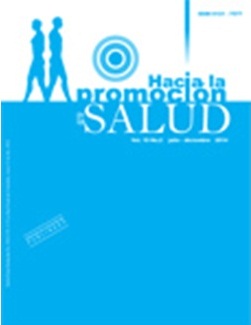Authors
Abstract
Introduction: this research develops the third part of the final report of the work that collects the proposals of the participants involved which are related with the necessary strategies to make daily conscience about the postulates that orient individual and collective elections, decisions, and actions in order to favor the quality of life as a sine qua non condition to obtain a well rounded and holistic human development which takes on the dignity and complete realization of human rights –especially fundamental human rights– as a guarantee for the exact fulfillment of the vital cycle stages and the goals established for the life expectations of each human being living on earth in the different human groups around the world. Objectives: to be aware once again of the Ethics of Care and Bioethics as humanistic paradigms in today's world in order to contribute to the harmonious human development with the circumstances proper to the present historic moment humanity is living. Methodology: qualitative research with focal discussion groups using directed oral open question interviews. Unit of work: Culture and Drugs Master's Program Students and undergraduate Social Work students from the Law and Social Sciences Faculty at Universidad de Caldas. Analysis unit: Texts taken from the transcription of interviews and focus group debates about the topic in the corresponding objective. Results: awareness of the attitudes and aptitudes assumed both in the human and environmental surroundings was taken, and there was reflection about the coherence among being, knowing, acting and saying from the consumerist social reality. Awareness about the defense of life and its quality, and about the self-care from the subjective, the inter-subjective, and the objectified points of view in the social and cultural practices and customs with the purpose of improving human development and of making it decent, starting with an adequate political education which allows to permeate, with public moral, both the citizens' rights and responsibilities.
Keywords
References
Ferrater Mora J. Diccionario Filosófico Barcelona: Ariel; 2000
Boisier S. Desarrollo local ¿De qué estamos hablando? En: Estudios sociales, 103. Santiago de Chile, publicado también en transformaciones globales, instituciones y políticas de desarrollo local. A Vásquez Baquero y O Madoery (Comp). Buenos Aires, Homo Sapiens, ediciones; 2001.
Krmpotic CS. El Concepto de Necesidad y Políticas de Bienestar. Buenos Aires: Espacio; 1999
Heller A. Sociología de la vida cotidiana. Barcelona: Península; 1990.
The Sunday Times, Desarrolle su Asertividad. Barcelona: Gedisa; 2000.
Nussbaum MC. Capacidades como titulaciones fundamentales. Sen y la justicia social, Bogotá: Universidad Externado de Colombia; 2005.
Morrillo GW. El derecho a la salud y el papel de la OMS. En: ¿Equidad? El problema de la equidad financiera de la salud. Bogotá: Antropos; 2001.
ANEC. Publicación Oficial de la Asociación Nacional de Enfermeras de Colombia 2009; 59.
Gracia D. Fundamentos de bioética. Madrid: Eudema;1989.
Nussabaum MC. Libertad de conciencia: Contra los fanatismos. 2009; Barcelona, Tusques: 47-48.
Vásquez RF. Rostros y mascaras de la comunicación, 2005, Bogotá, Kimpres: 135-136.
Aristóteles. Ética Nicomaquea. Bogotá: Ediciones Universales; 1987.
Torralba F. Lo ineludiblemente humano: hacia una fundamentación de la ética del cuidar. Barcelona, Instituto Borja de Bioética; 2000: 164-165.
Clemente A. Psicología del desarrollo adulto. Madrid: Narcea; 1995.
Lolas F. Estudios de bioética social, prioridades en salud y salud intercultural en bioética social, 2007, Santiago de Chile, Universidad de Chile: 20-21.
Piwonka MA. Bustos I, Gaete, QF, Urruita BM. Saber bien para hacer bien. En: Bioética temas y perspectiva, 1996 OPS Washington D C: 50.
Cortina A. Educación en valores y responsabilidad cívica. Bogotá: El Búho; 2002.
Rawls JN. Teoría de la justicia. Madrid: Fondo Cultura Económica; 1978.


 PDF (Español)
PDF (Español)
 FLIP
FLIP






















